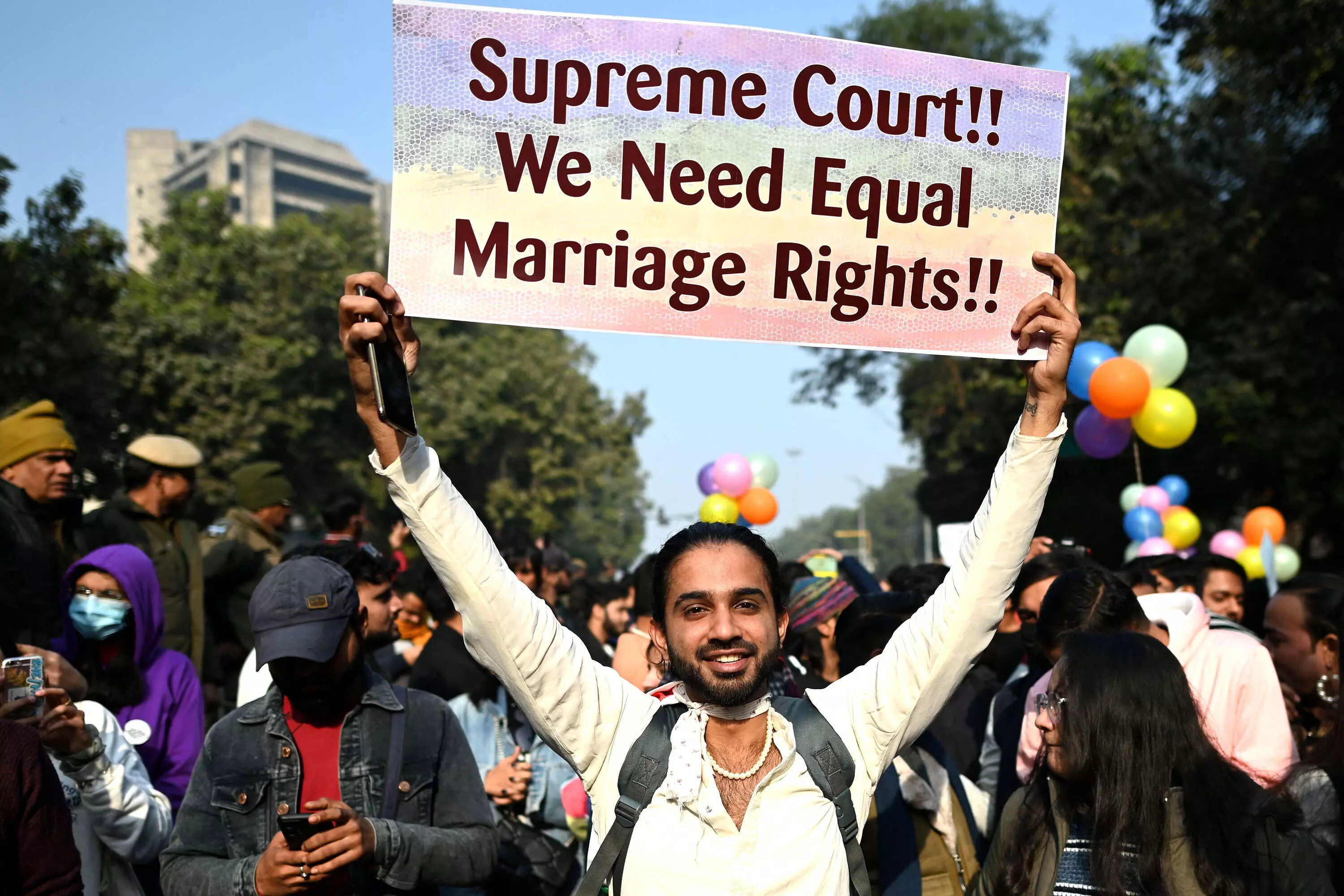Love, don’t marry
Gay couples have the right to love but not to marry; a bittersweet judgement that illuminates the uphill task at hand for the LGBTQ+ community

If I’m asked today who is a modern-day living role model in India, whose work and persona inspires me — the answer is an easy one — the Chief Justice of India DY Chandrachud. There have been very few judges or CJIs as prominent as him in recent times, who has become almost a guardian of freedoms and rights. Whenever he presides over a case, more often than not, his verdicts are sensible and rational, and his judgements instil faith and trust in the Indian judicial system. Often his decisions, taken against majoritarian views propped by government backing, have been awe-inspiring. To stand steadfast in the eye of the storm, and to be at the same time, the most revered, feared, and even disliked legal public personality in India, cannot be easy. He carries a huge burden, that of the pleas of numerous appellants who believe that CJI Chandrachud would do the right thing. Sadly, as this week’s judgement on the matter of granting marriage rights to gay couples proved, not all decisions can be the CJI’s to overturn.
LGBTQ+ allies must speak up for the acceptance of same-sex marriages. Love is love but it means nothing unless recognised by the courts. Some may say that the decriminalisation of homosexuality awards freedom to queer couples, and that should be enough for now. Indeed, the reversal of Article 377 in 2018 was a landmark judgement that safeguards queer love from abuse by law enforcers. However, there is much that a couple loses out on if they aren’t married — health insurance, provident funds, home loans — there are many practical perks of being legally hitched. Marriage offers social, legal, and economic validation to all couples, whether heterosexual or gay. So, while we allow our queer couples to love, we are not allowing them equality yet.
Could the Supreme Court have given marriage rights to gay couples? Now here’s what the apex court did — it recognised the rights of gay couples but stopped short of awarding them the permission for nuptials. The government had earlier in the year branded the appeal for marriage rights to gay couples as “urban, elitist views” “not comparable to the Indian family unit concept” consisting of a husband, wife, and children. Pro-same sex marriage activists have long argued that forbidding gay marriage is a violation of constitutional rights and is discriminatory in nature. The five-judge Constitution Bench jointly agreed that same-sex couples had the right to cohabit and be free of coercion. However, CJI Chandrachud went on to say, “The court, in the exercise of the power of judicial review, must steer clear of matters, particularly those impinging on policy, which fall in the legislative domain”.
The onus is now on the Parliament and state legislatures to take up the matter. Given the upcoming Lok Sabha elections, it’s unlikely that the gay voice will get any importance. Elections are about development, jobs, growth, inflation, corruption, caste, religion, and the like. Same-sex union rights are least likely to feature in party manifestos. Moreover, India is still a largely socially conservative society. A gay marriage law would require a herculean effort to change mindsets paving the way for ratification in the Lok Sabha and Rajya Sabha. A task that seems almost unattainable in the current climate. How much change can be affected on-ground, how many hearts can be altered at the grass-roots to make way for such a legislation in the Indian Parliament? And therein, lies the disappointment of the LGBTQ+ community; for the path to emancipation feels a lot like the road to perdition.
The writer is an author and media entrepreneur. Views expressed are personal




